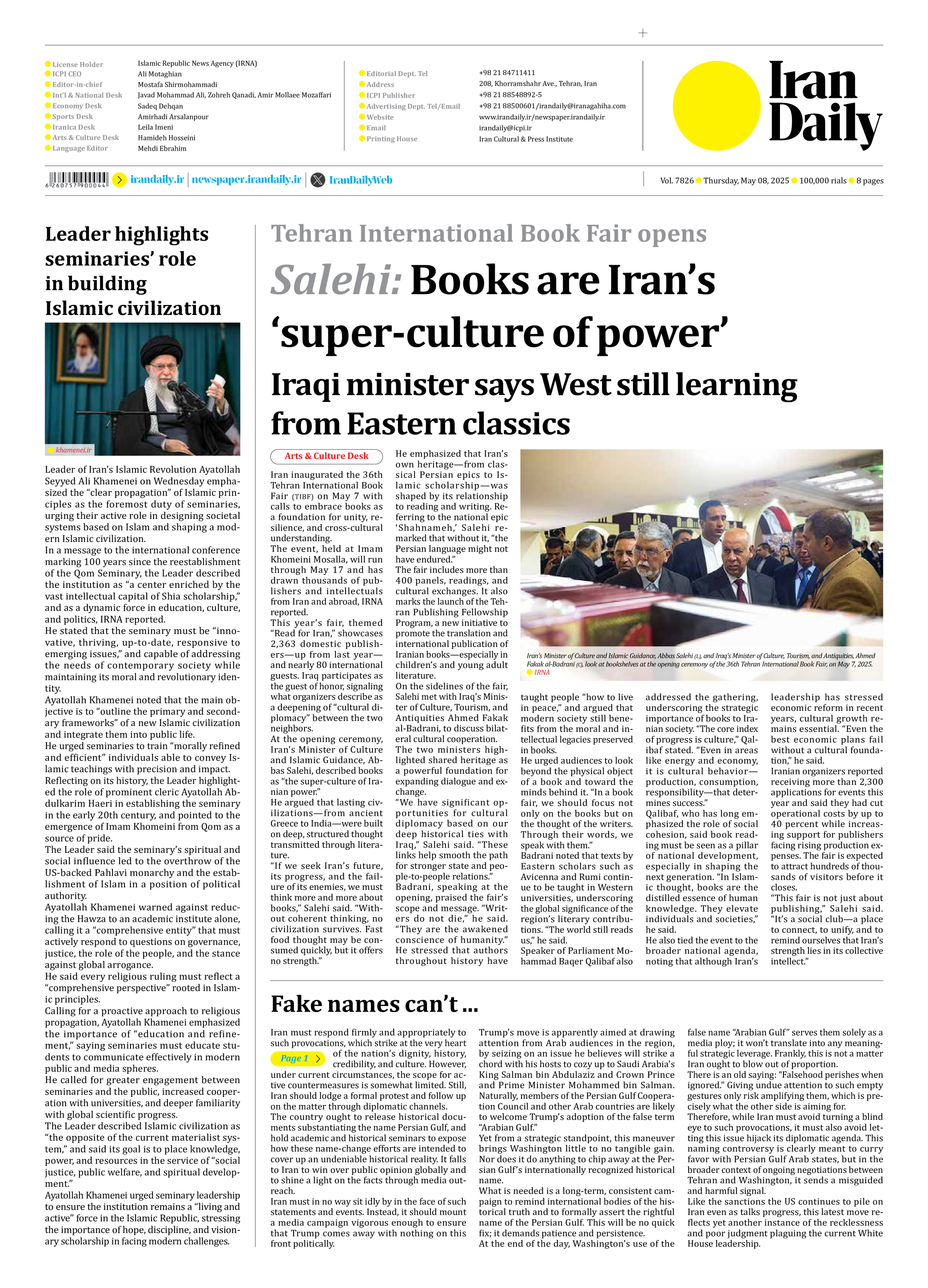
Leader highlights seminaries’ role in building Islamic civilization
Leader of Iran’s Islamic Revolution Ayatollah Seyyed Ali Khamenei on Wednesday emphasized the “clear propagation” of Islamic principles as the foremost duty of seminaries, urging their active role in designing societal systems based on Islam and shaping a modern Islamic civilization.
In a message to the international conference marking 100 years since the reestablishment of the Qom Seminary, the Leader described the institution as “a center enriched by the vast intellectual capital of Shia scholarship,” and as a dynamic force in education, culture, and politics, IRNA reported.
He stated that the seminary must be “innovative, thriving, up-to-date, responsive to emerging issues,” and capable of addressing the needs of contemporary society while maintaining its moral and revolutionary identity.
Ayatollah Khamenei noted that the main objective is to “outline the primary and secondary frameworks” of a new Islamic civilization and integrate them into public life.
He urged seminaries to train “morally refined and efficient” individuals able to convey Islamic teachings with precision and impact.
Reflecting on its history, the Leader highlighted the role of prominent cleric Ayatollah Abdulkarim Haeri in establishing the seminary in the early 20th century, and pointed to the emergence of Imam Khomeini from Qom as a source of pride.
The Leader said the seminary’s spiritual and social influence led to the overthrow of the US-backed Pahlavi monarchy and the establishment of Islam in a position of political authority.
Ayatollah Khamenei warned against reducing the Hawza to an academic institute alone, calling it a “comprehensive entity” that must actively respond to questions on governance, justice, the role of the people, and the stance against global arrogance.
He said every religious ruling must reflect a “comprehensive perspective” rooted in Islamic principles.
Calling for a proactive approach to religious propagation, Ayatollah Khamenei emphasized the importance of “education and refinement,” saying seminaries must educate students to communicate effectively in modern public and media spheres.
He called for greater engagement between seminaries and the public, increased cooperation with universities, and deeper familiarity with global scientific progress.
The Leader described Islamic civilization as “the opposite of the current materialist system,” and said its goal is to place knowledge, power, and resources in the service of “social justice, public welfare, and spiritual development.”
Ayatollah Khamenei urged seminary leadership to ensure the institution remains a “living and active” force in the Islamic Republic, stressing the importance of hope, discipline, and visionary scholarship in facing modern challenges.







